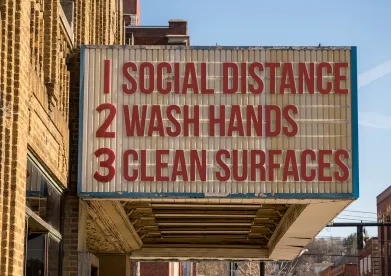Critical Industries Including Energy, Chemicals, and Food Production Are Exempt
In response to the rapid spread of coronavirus in Washington, on March 23, 2020, Governor Jay Inslee issued Proclamation No. 20-25, titled “Stay Home – Stay Healthy,” which requires individuals to stay at home except to conduct essential functions such as food shopping and for employment in “essential business services.” The order also requires all “non-essential” businesses to shutter their operations. The order is effective at midnight on March 25 and expires at midnight on April 6, unless extended.
For Washington businesses, the most important question is whether they are included on the list of businesses engaged in “critical infrastructure” activities that are exempt from closure. Proclamation 20-25 includes a 14-page appendix listing categories of “Essential Critical Infrastructure Workers” who are exempt from the stay-at-home order for purposes of employment. Generally, the list includes workers performing specified functions in industries essential to public health and safety, or economic and national security. Specific industries include utilities (including energy, water, and wastewater), chemicals, health care, emergency services, food and agriculture, transportation, “critical manufacturing” (generally, industries that manufacture supplies for other critical industries), and hazardous materials management.
Although not required, it is advisable for businesses engaged in critical activities to participate in Washington’s Business Re-Entry Registration process. The program, operated by the Washington Military Department, provides information about critical private-sector industries to emergency responders and the Washington National Guard as those agencies are responding to, and recovering from, disasters or other emergencies. Participation is voluntary, but registration is likely to ease the way for critical industries to continue to function during the current emergency, as well as in future emergencies.
Washington has not issued guidance indicating whether it will use enforcement discretion to relieve any regulatory compliance deadlines, as some other states have done. Businesses that expect delays due to the COVID-19 response can contact counsel for advice on whether to make that type of request and best practices for doing so.






 />i
/>i

